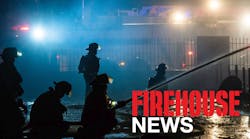Also important but much less emphasized is the way in which incident reports are handled. This is especially significant with EMS reports because they contain personal medical information that can be subject to significant legal restrictions. Every fire department and EMS organization should have a well-thought-out policy regarding the information it releases regarding patient care and other aspects of EMS calls. Departmental policies should be consistent with relevant state laws. Every member of the department should know this policy since information requests often come without warning.
The very nature of our work in responding to emergencies arouses public interest and concern. It is important for departments to provide information to the public about operations generally and about specific incidents of interest. Requests can come from the press, attorneys, other government agencies or researchers.
Balanced against this legitimate interest is the well-established right of individuals to privacy. It is easy to understand the desire of public figures and private citizens to protect themselves from the release of information about themselves that they consider embarrassing or damaging. Statutes and case law solidly establish this right. In recognition of this important legal right, there should be a clear departmental policy regarding what portions of the information collected during the course of an incident can be released and what should remain confidential.
The information contained in a call record can be divided into two categories. Some portions are generic in nature, while other parts specifically identify the patient.
This individually identifiable information should be treated as confidential and released only in limited, carefully controlled situations. This should include medical or personal information that can be related to an individual such as name, address or any other identifying information. This information should be released only by the patient, with his or her permission or in compliance with a subpoena or other court order. If there is any doubt, err on the side of privacy, says Chip Comstock, a Youngstown, OH, attorney involved with the fire service for many years.
One special case that arises often is a request for information to be used for research, oversight or management re-views. These can come from local or state government, or from academic institutions. Certainly, these can be valid, important requests. Requests to participate in research deserve to be considered whenever possible. Precautions, however, should be taken before beginning the study to separate individually identifiable information from that given to researchers. Researchers will be interested in how many calls of a certain type were run, how often a certain procedure was used and outcomes. But they do not need to know names or other patient-specific information.
A politically tricky situation is the request for information from other government agencies. Call response information is valuable for measuring workloads and trends. When a department is an agency of local government or funded by local government, records from calls can be vital in demonstrating the level of service being provided to the community, and making the case for new or different resources. But departments still must be careful not to release individual medical records, either to other government agencies or to other bodies of government.
Because many volunteer departments are private corporations rather than government agencies, they should be especially careful about releasing information to local governments. Even the fact that the local government provides funding to the volunteer department does not change the principle that personal information is confidential and can be released only in limited circumstances. Instead, every effort should be made to furnish general information that is not patient-specific. For example, it would be appropriate to separate the patient's name and address from the remainder of the call record.
The privacy of medical records is controlled by state law, so legal standards among the states range from strong to virtually non-existent. According to Washington, D.C., privacy consultant Bob Gelman, "Today, everyone is in an ambiguous situation." The law isn't clear on medical workers such as paramedics and EMTs. This, however, could change soon. Congress is expected to seriously consider this year a bipartisan bill sponsored in 1996 by Sen. Robert Bennett (R-UT) that would establish nationwide standards for handling medical records. The bill contains a section specifically addressing emergency situations, and it is likely that EMS call records will be included within its scope. There would be restrictions on what information contained in call records could be released and to whom. Further, it would pre-empt most state laws, which would have an effect on virtually every department's operations.
The fire service needs to become involved in the debate on this legislation. As Gelman notes, emergency situations are different from other medical circumstances, and this needs to be reflected in the proposal. Those involved in the privacy debate do not have a good knowledge of real-world EMS operations.
Legislators need to understand the impact of their proposals and to assure that they would not harm emergency medical systems. Gelman urges EMS providers to know current law and pay attention to the proposed legislation. It is important to heed Gelman's advice.
Steve Blackistone, a Firehouse® contributing editor, is an attorney and a member of the Bethesda-Chevy Chase Rescue Squad in Montgomery County, MD.




